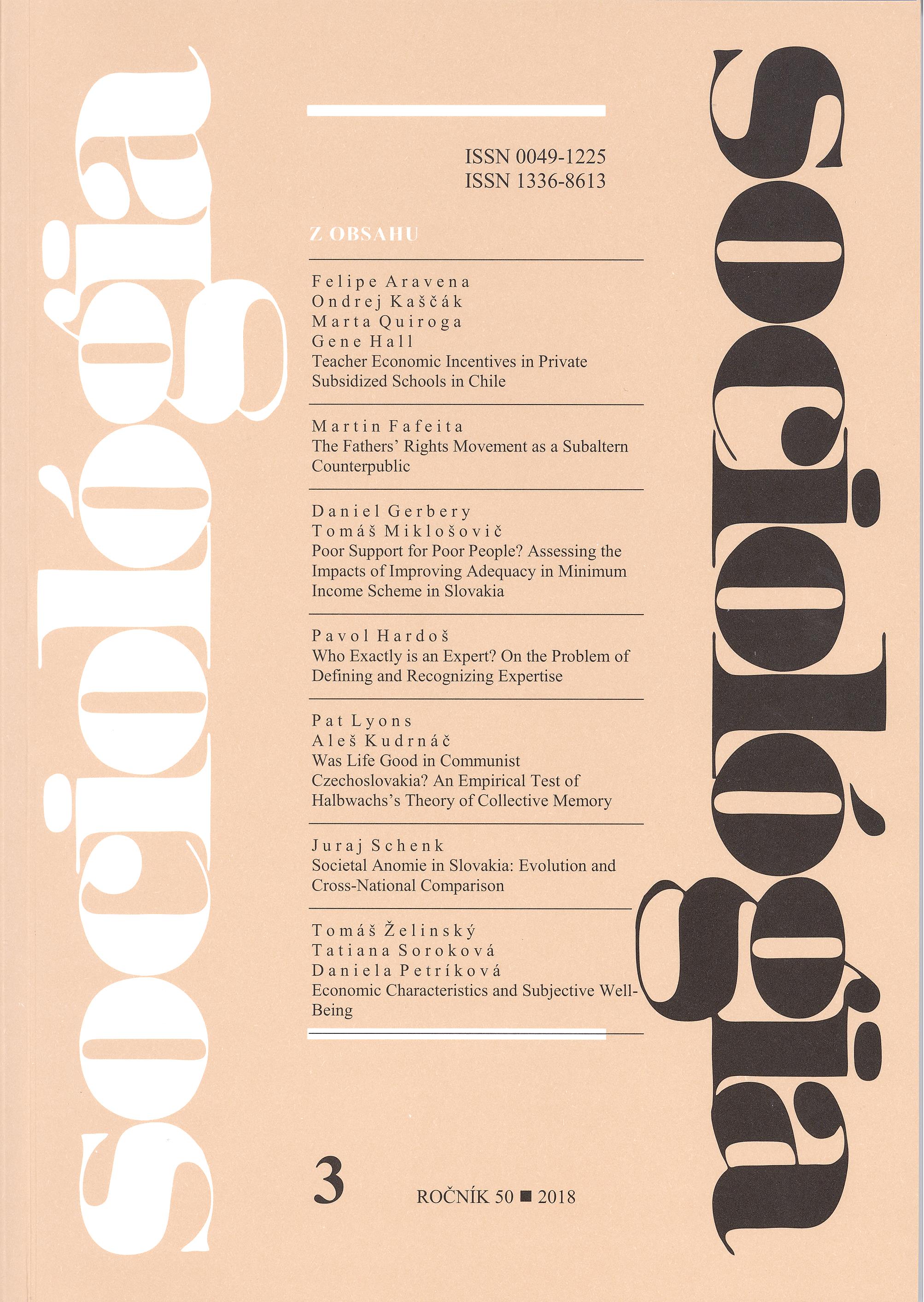Was Life Good in Communist Czechoslovakia? An Empirical Test of Halbwachs’s Theory of Collective Memory
Was Life Good in Communist Czechoslovakia? An Empirical Test of Halbwachs’s Theory of Collective Memory
Author(s): Pat Lyons, Aleš KudrnáčSubject(s): Social Sciences, Transformation Period (1990 - 2010), History of Communism, Politics of History/Memory
Published by: SAV - Slovenská akadémia vied - Sociologický ústav
Keywords: Communism; post-communism; Czechoslovakia; Halbwachs; collective memory; evaluations of the past and present; youth;
Summary/Abstract: How do Czech high school students aged 15-20 years evaluate life in Czechoslovakia between 1948 and 1989? As Czechs (and Slovaks) born after the Velvet Revolution do not have direct experience of life under communism, the evaluations they have about this period of contemporary history must be based on indirect evidence coming from older family members, school, the media, museums, etc. Using a theory of collective memory developed by French sociologist, Maurice Halbwachs (1877 – 1945) combined with empirical (mass survey) evidence from 2014 this paper shows that young Czechs’ evaluations of the past differ on the basis of social group membership and that evaluations of the past are strongly associated with present conditions. Specifically, this study reveals that females, students in less academic schools, and those living outside Prague have more positive collective memories; and hence evaluations of life under communism. Moreover, the past is evaluated in terms of the present where students least satisfied with contemporary life have the most positive evaluations of life under communism. This study concludes by illustrating how Halbwach’s theory of collective memory matches with some of the key findings of contemporary studies of Czechoslovak communism.
Journal: Sociológia - Slovak Sociological Review
- Issue Year: 50/2018
- Issue No: 3
- Page Range: 289-310
- Page Count: 24
- Language: English

